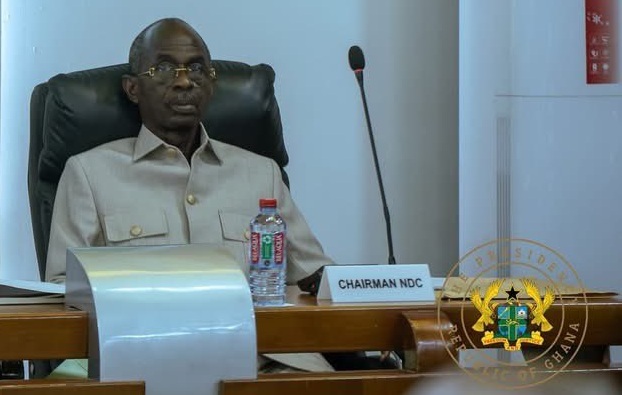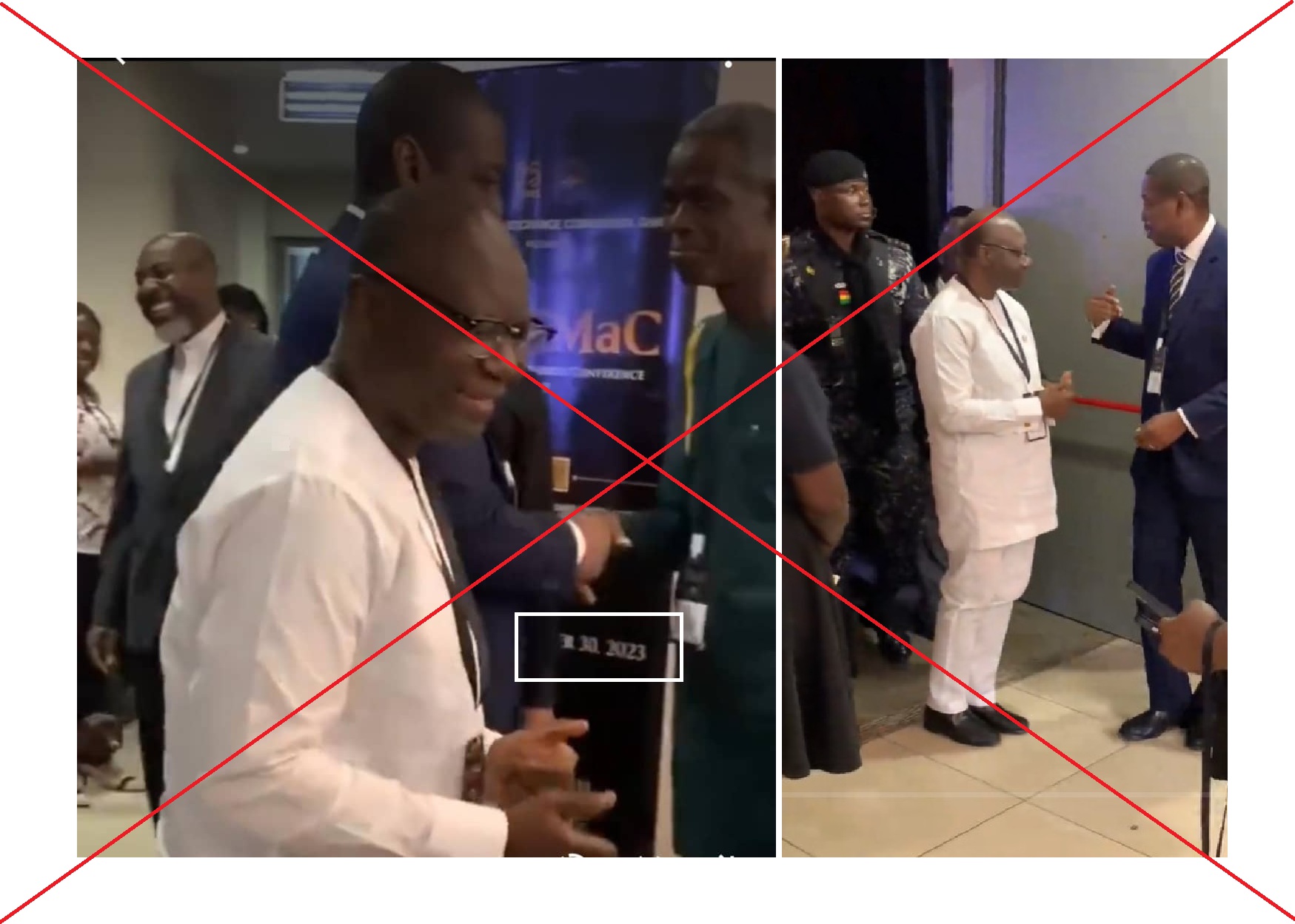Two videos believed to be manipulated have gone viral on social media platforms including X and WhatsApp. The content of the videos are targeted at the person of former President John Dramani Mahama and current Vice President Mahamudu Bawumia.
The first content analysed is an audio-visual showing a photo of former President John Mahama making some comments alleged to be part of a secret recording.
In the 27-second recording, the former President is allegedly heard saying: “Like I always say, Ghanaians have short memory. You can lie to them today and by tomorrow, they will forget. Let us finish hard. Let us keep lying to them and get all the votes. The Ashantis have believed in the lie and are coming out to support. So let’s finish hard. For the security forces, let’s manage them till we finish the election and we can flush them out.”
Fact-check
With support from a team of experts from Deepfakes Rapid Response Force, an initiative of WITNESS, GhanaFact had the following analysis response regarding the specific audio-visual.
Three teams independently conducted investigations on the audios and reported the following;
Analysis of the audio content of former President John Mahama:
Results: Given the findings from the spectrogram analysis and deepfake detection tools, the team believes the audio is likely to contain evidence of manipulation.
Process: The conclusions are based on spectrogram analysis, deepfake detection, and speaker recognition tools. Different techniques provided conflicted results, with some evidence of inauthentic segments that led the team to have low confidence for AI manipulation.
Limitations to keep in mind: There is always the possibility that differences in recording conditions and noise conditions between the training data and test samples can lead to incorrect conclusions.
The John Mahama viral audio:
Results: The team found that the audio is likely to be real with no evidence of manipulation.
Process: The detector indicated “No Evidence” of manipulation. The audio and the results were later reviewed by a human expert. Spectrogram analysis confirms a natural flow and structure, consistent with genuine human speech. Background noise, such as slight reverberations and environmental sounds, aligns with organic recording conditions and does not suggest signs of AI manipulation.
General limitations to keep in mind:
- Background Noise can make the detection challenging and occasionally lead to false positives in high-sensitivity models. These features can also obscure subtler signs of manipulation, making human evaluation less reliable.
- Short samples or incomplete context can reduce the robustness of detection models. Human analysts may also misinterpret isolated clips, especially when key contextual elements are absent.
- When analyzing videos containing multiple faces or voices, the presence of not manipulated elements may confuse AI predictions for specific targets.
- Newer generative AI techniques can produce highly realistic results that evade even very advanced detection models and human reviewers.
- Human evaluation, while valuable, can be influenced by preconceptions about what constitutes “natural” behavior or appearance in a recording.
Furthermore, researchers under the Ghana Fact-Checking Coalition listened to the audio content of former President John Mahama and made a manual comparison with other interviews with John Mahama, and found some voice discrepancies.
AI audio detection tools like Deepware and Hiya Deepfake voice detectors were also used. These tools rated the viral audio as 62% inauthentic and flagged it as suspicious while the other interviews were rated as 99% and 77% authentic.
CLAIM 2 – Bawumia targeted by AI-generated audio
Headline: Viral Bawumia audio AI-generated
Claim: A viral TikTok audio allegedly features Mahamudu Bawumia, NPP presidential candidate, calling Ghanaians weak-minded and promising to deceive them into winning the upcoming election.
Verdict: False.
Explanation: We compared the audio to five of Mr Bawumia’s past YouTube speeches, and it revealed significant discrepancies. The audio features unnatural pitch variations and a polished accent that diverges from his typical speaking style, suggesting manipulation. Hiya Deepfake Voice Detector tool further flagged it as 80 per cent deepfake.
What Bawumia is heard saying:
In the recording, he calls Ghanaians gullible and encourages lying to the voters. He says: “Most of them have even forgotten all the lies we told in 2016 about the dollar… so let’s just stick to the script and keep promising them. Don’t even mention the economy … just fool them with digitalisation.”
WITNESS ANALYSIS PROCESS
In total, three teams analysed the audio. All teams concluded that the audio is likely to be inauthentic.
Team 1:
Results: Through analysis by the team’s tool, as well as human analysis by members of the team, the team concluded that the audio is likely manipulated by AI.
Process: The audio was run through the detection tools and received a score of probably manipulated by AI. It is likely but not certain that this audio was created or manipulated using generative AI. The spectrograms were later analysed by an expert which supports this conclusion.
Limitations to keep in mind: The Ghanaian accent does not have a big representation in publicly available datasets. Additionally, what appears to be the insertion of background noise, birds in this case, has the potential to limit the efficacy of a vocal detection tool.
Team 2:
Results: Based on findings of the team’s detection tools, the team believes that the audio clip is likely inauthentic.
Process: The team used various methods, including deepfake detection tool, speaker recognition tool and human analysis. The methods indicated the presence of evidence of manipulation.
Limitations to keep in mind: According to the team, the audio has characteristics of a “laundered attack,” where noise (for example, background sounds) is deliberately added to obscure the detection of inauthentic elements. Laundered attacks are more difficult to classify using deepfake detection and speaker recognition tools.
Team 3:
Results: The team found that the audio is likely to be manipulated.
Process: Audio file was run through the team’s detection tool and the tool indicated the audio is likely to be manipulated. The audio was also analysed by an expert who pointed out that often changing amplitude in the speaker’s voice is unnatural and that background noises could have been artificially introduced.
Limitations to keep in mind: The tool has limited testing for Ghanaian accents, however has good performance for English language.
By: Gifty Tracy Aminu
This report is part of the Ghana Fact-Checking Coalition’s Election 2024 coverage with analysis from WITNESS

















